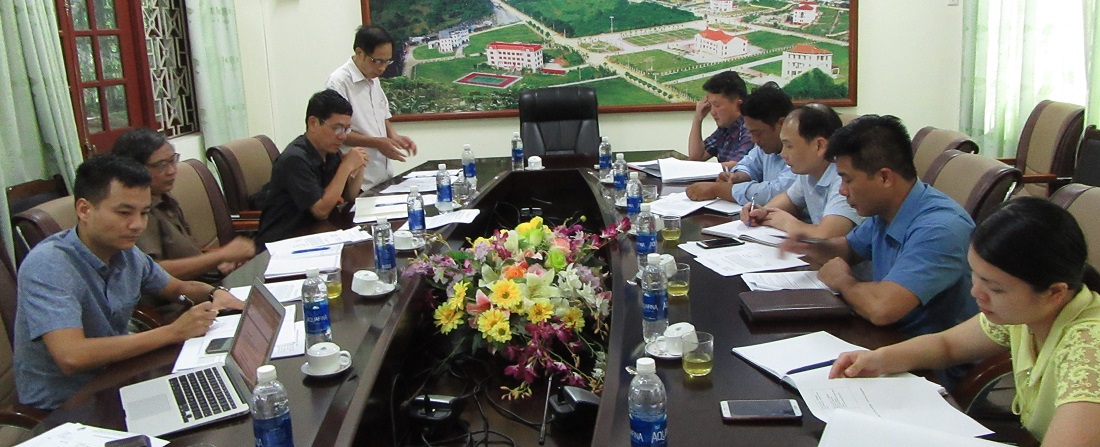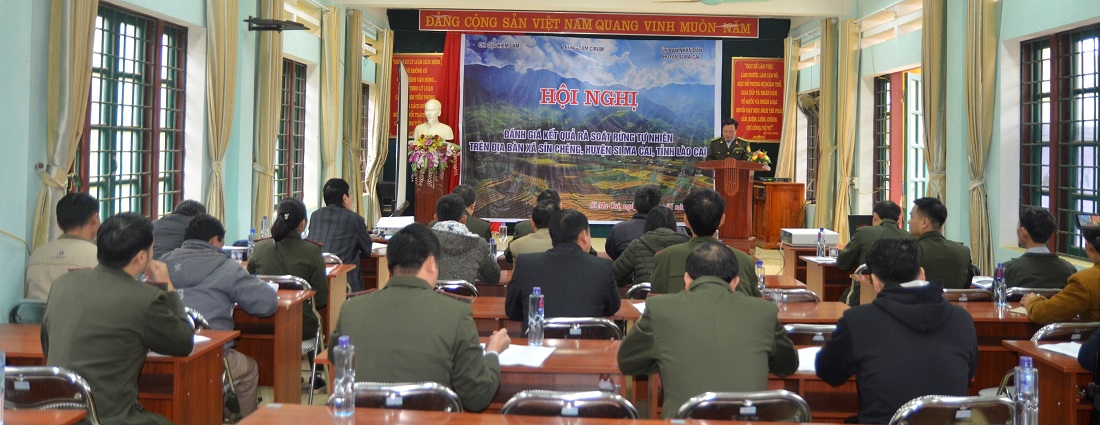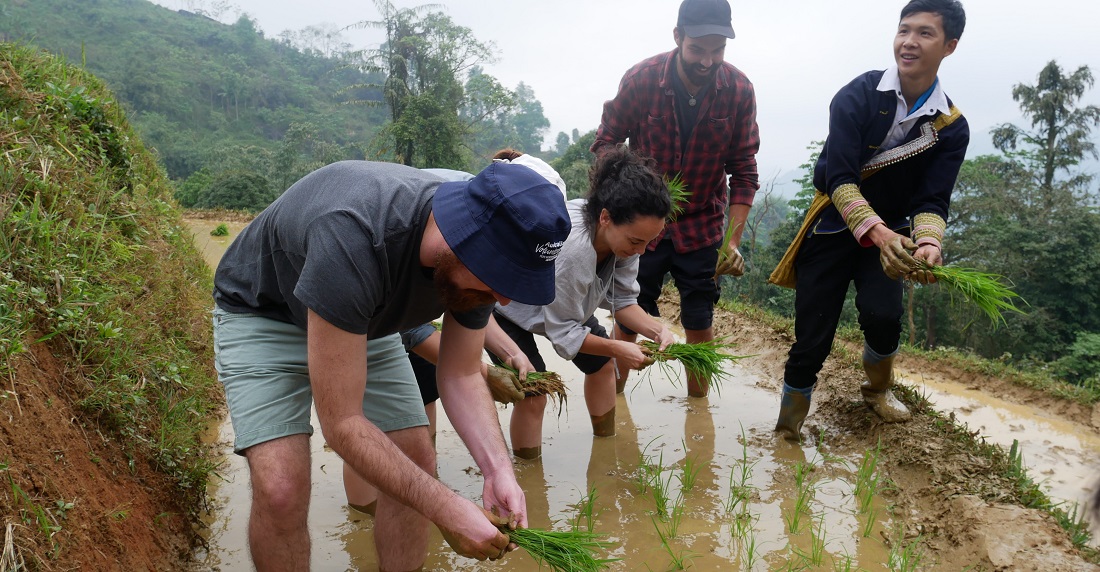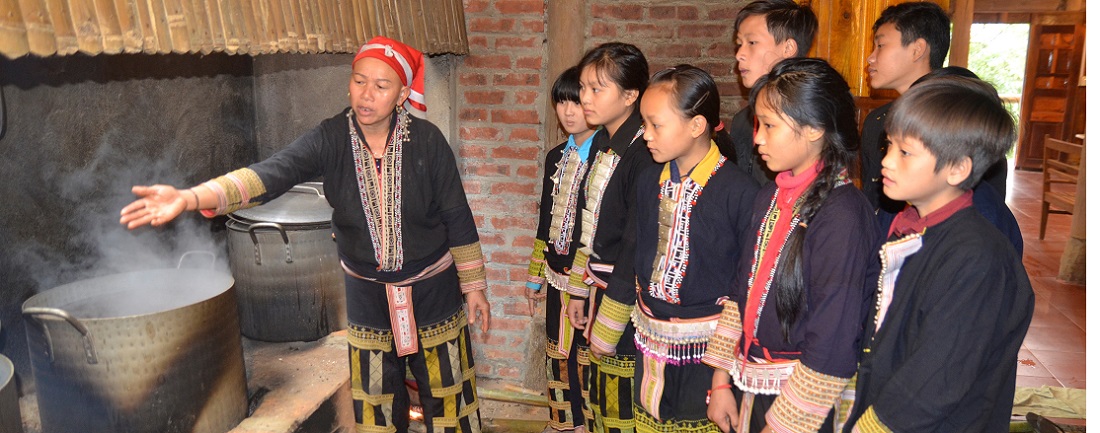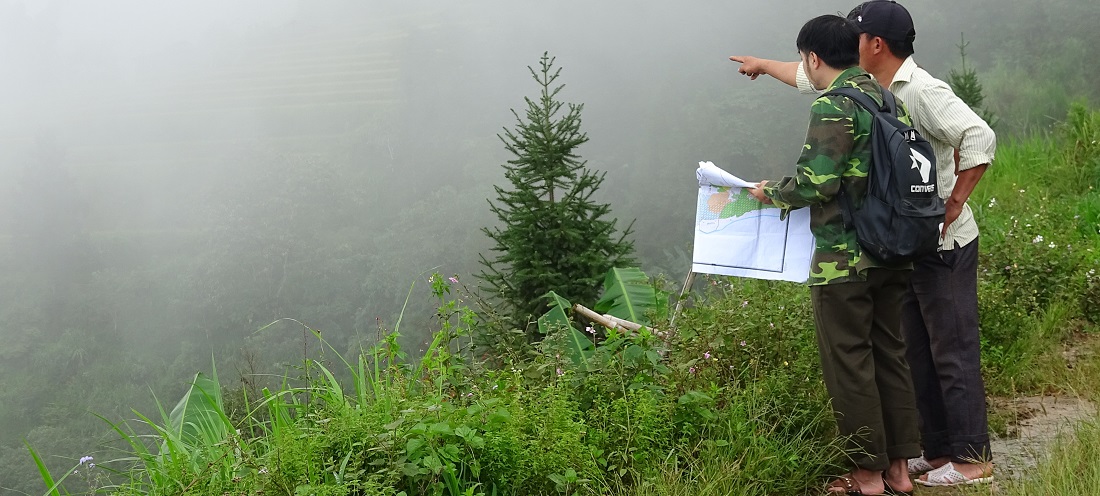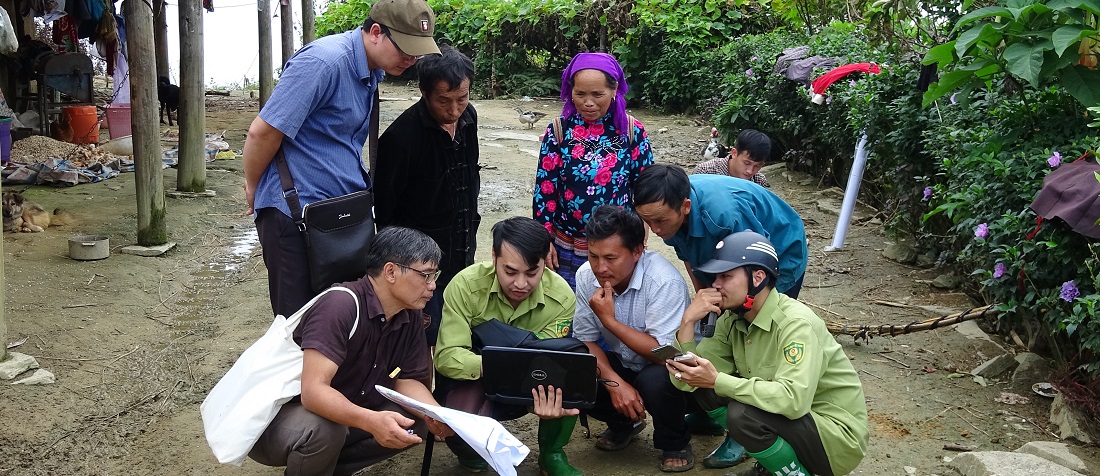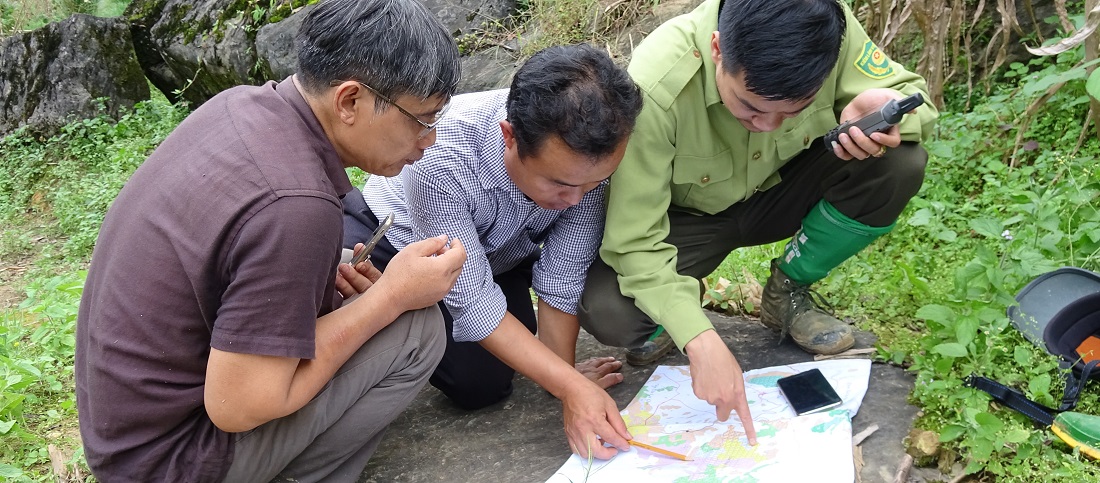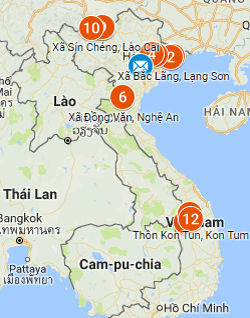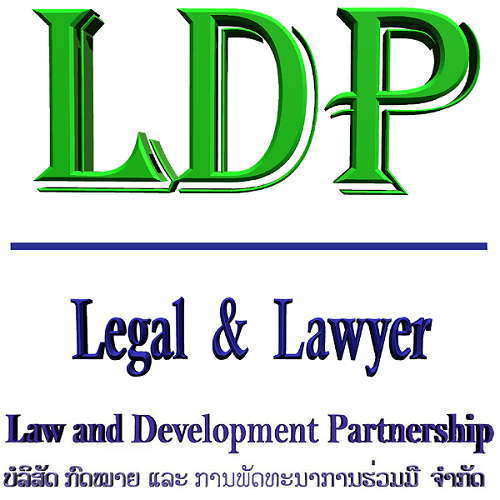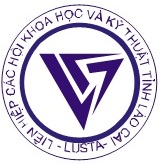‘I gained understanding about process of sending and resolving complaints and arraignment. Now I know where and who I should look for to assist me for land dispute resolution.’-Ms Sung Thi Suong, from Ban Me commune, Simacai district
On Tuesday the 30th of August, CIRUM hosted a workshop in Simacai with different communities of Lao Cai. In response to community concerns over their land rights knowledge, CIRUM focused the workshop on increasing awareness of land rights. The workshop, organised in co-operation with the Lao Cai Union of Technology and Science Association (LUSTA), covered the forest land and management laws as well as the formal complaints processes.
The local communities that CIRUM works with in Lao Cai often face challenges in claiming and securing their rights over forest and community land. Limited awareness within communities of land regulations is exacerbated by a lack of assistance from local authorities, including inadequate consultation prior to land-based decisions. Contradictions within the law also create issues of land allocation, as one Muong Khuong Forestry ranger officer expressed; these contradictions are ‘because the forest and forest land are not allocated to households or communities. A lot of land dispute in Muong Khuong are due to unclear land ownership.’
The workshop aimed at addressing the lack of community awareness, and build not only community knowledge on land rights but the confidence to advocate for themselves and make their own land rights violation claims to local authorities. The response from the workshop will also be used for future advocacy and lobbying purposes, including discussions on the upcoming amendments to the Land Law and Forestry Law.
Representatives of 15 communes attended the workshop, including 13 communes of Simacai district, Den Sang commune of Bat Xat district, and Cao Son commune of Muong Khuong district. A consultant board helped facilitate the workshop, which included members of CIRUM, LUSTA, LandNet, district Forestry Rangers, the district Department of Resources and Environment and district Justice Committee Division. Participants were split into 3 discussion groups, each with 2 members of the consultant board.
Workshop participants discussed in group/ Photo: CIRUM
The groups discussed their knowledge of community and household land rights, and the different processes available to them for complaints, dispute resolution, and arraignment. Participants discussed those issues that affected the most, while consultants gave their opinions and suggestions for dispute management.
A group’s representative presented the group discussion/Photo: CIRUM
The groups identified a number of issues and possible areas to focus for future dispute resolution. All 3 groups agreed that the best method for conflict management was at the local village level, so that complaints would not need to be made to higher authorities or include the court system. A leader from Đội 1 village gave an example of this kind of dispute resolution; ‘Land disputes can be resolved at village. We solved a dispute between 3 households by having involvement of the village leader, the villager elder and other village households to advocate the 3 households to understand the history of that land and customary laws. At the end, 2 households were convinced to give that land for the other household’.
Đội 1 village leader (standing) shared a land dispute story in his village/ Photo: CIRUM
Participants also identified the source of many land disputes; the inconsistencies between the Land Law and Forestry Law, which contradict one another and leave ambiguity in forest and land allocation. In addition, land allocation often fails to include land for household and community use. A local officer from the Bat Xat Department of Natural Resources and Environment (DONRE) recognised the need to address those inconsistencies; ‘Village leaders play important roles to resolve land conflict at local level’, ‘We find contradictions remaining in Land Law and Forestry Law; therefore, we need to advocate for changes in both laws to facilitate forest and forest land allocation.’
A member of the consultant board/Photo: CIRUM
The workshop increased participants’ familiarity with land laws, forestry laws and the dispute resolution mechanisms, and now feel that they know where to go to access help when they need it. CIRUM plans to host many more similar workshops in the future.
.jpg) Workshop participants discussed in group/ Photo: CIRUMThe groups discussed their knowledge of community and household land rights, and the different processes available to them for complaints, dispute resolution, and arraignment. Participants discussed those issues that affected the most, while consultants gave their opinions and suggestions for dispute management.
Workshop participants discussed in group/ Photo: CIRUMThe groups discussed their knowledge of community and household land rights, and the different processes available to them for complaints, dispute resolution, and arraignment. Participants discussed those issues that affected the most, while consultants gave their opinions and suggestions for dispute management..jpg) The groups identified a number of issues and possible areas to focus for future dispute resolution. All 3 groups agreed that the best method for conflict management was at the local village level, so that complaints would not need to be made to higher authorities or include the court system. A leader from Đội 1 village gave an example of this kind of dispute resolution; ‘Land disputes can be resolved at village. We solved a dispute between 3 households by having involvement of the village leader, the villager elder and other village households to advocate the 3 households to understand the history of that land and customary laws. At the end, 2 households were convinced to give that land for the other household’.
The groups identified a number of issues and possible areas to focus for future dispute resolution. All 3 groups agreed that the best method for conflict management was at the local village level, so that complaints would not need to be made to higher authorities or include the court system. A leader from Đội 1 village gave an example of this kind of dispute resolution; ‘Land disputes can be resolved at village. We solved a dispute between 3 households by having involvement of the village leader, the villager elder and other village households to advocate the 3 households to understand the history of that land and customary laws. At the end, 2 households were convinced to give that land for the other household’..jpg) Đội 1 village leader (standing) shared a land dispute story in his village/ Photo: CIRUMParticipants also identified the source of many land disputes; the inconsistencies between the Land Law and Forestry Law, which contradict one another and leave ambiguity in forest and land allocation. In addition, land allocation often fails to include land for household and community use. A local officer from the Bat Xat Department of Natural Resources and Environment (DONRE) recognised the need to address those inconsistencies; ‘Village leaders play important roles to resolve land conflict at local level’, ‘We find contradictions remaining in Land Law and Forestry Law; therefore, we need to advocate for changes in both laws to facilitate forest and forest land allocation.’
Đội 1 village leader (standing) shared a land dispute story in his village/ Photo: CIRUMParticipants also identified the source of many land disputes; the inconsistencies between the Land Law and Forestry Law, which contradict one another and leave ambiguity in forest and land allocation. In addition, land allocation often fails to include land for household and community use. A local officer from the Bat Xat Department of Natural Resources and Environment (DONRE) recognised the need to address those inconsistencies; ‘Village leaders play important roles to resolve land conflict at local level’, ‘We find contradictions remaining in Land Law and Forestry Law; therefore, we need to advocate for changes in both laws to facilitate forest and forest land allocation.’.jpg) The workshop increased participants’ familiarity with land laws, forestry laws and the dispute resolution mechanisms, and now feel that they know where to go to access help when they need it. CIRUM plans to host many more similar workshops in the future.
The workshop increased participants’ familiarity with land laws, forestry laws and the dispute resolution mechanisms, and now feel that they know where to go to access help when they need it. CIRUM plans to host many more similar workshops in the future.





